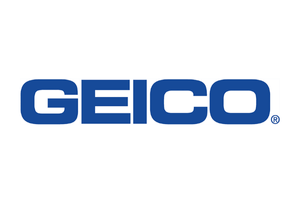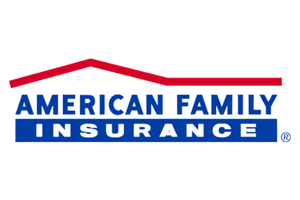Does Allstate homeowners cover lightning strikes?
Learn about Allstate homeowners insurance and whether it covers lightning strikes. Discover the extent of coverage provided by Allstate and ensure your home is protected from the unpredictable forces of nature.
Read more Secured with SHA-256 Encryption





Save Money by Comparing Insurance Quotes
Compare Free Home Insurance Quotes Instantly




Table of Contents
Table of Contents


Insurance Content Managing Editor
Daniel S. Young began his professional career as chief editor of The Chanticleer, a Jacksonville State University newspaper. He also contributed to The Anniston Star, a local newspaper in Alabama. Daniel holds a BA in Communication and is pursuing an MA in Journalism & Media Studies at the University of Alabama. With a strong desire to help others protect their investments, Daniel has writt...
Daniel S. Young


Licensed Insurance Producer
Dani Best has been a licensed insurance producer for nearly 10 years. Dani began her insurance career in a sales role with State Farm in 2014. During her time in sales, she graduated with her Bachelors in Psychology from Capella University and is currently earning her Masters in Marriage and Family Therapy. Since 2014, Dani has held and maintains licenses in Life, Disability, Property, and Casualt...
Dani Best
Updated January 2025
All homeowners know the importance of protecting their property from unforeseen circumstances. One such threat is lightning strikes. In this article, we will explore the topic of homeowners insurance coverage for lightning strikes and specifically focus on Allstate homeowners insurance. Understanding the scope of coverage provided by Allstate for lightning strikes is essential for homeowners seeking reliable protection for their homes.
Understanding Homeowners Insurance
Before delving into the specifics of Allstate’s coverage, let’s briefly discuss homeowners insurance in general. Homeowners insurance is a type of property insurance that provides financial protection to homeowners in the event of covered losses or damages to their homes and assets. It typically covers damages caused by fire, theft, storms, and certain natural disasters. However, the coverage may vary depending on the insurance provider and the policy options chosen by the homeowner.
With that in mind, let’s explore the fundamentals of homeowners insurance and its significance for homeowners.
What is Homeowners Insurance?
Homeowners insurance is a contractual agreement between a homeowner and an insurance company. The homeowner pays a regular premium, and in return, the insurance company agrees to provide financial compensation for covered losses or damages to the home and personal belongings within it. This compensation can help the homeowner rebuild or repair their property after an unfortunate incident such as a fire, theft, or natural disaster.
Homeowners insurance typically consists of two primary components:
- Property coverage: This component protects the physical structure of the home, the homeowner’s personal belongings, and any detached structures like a garage or shed, from covered losses.
- Liability coverage: This component offers protection to the homeowner in case someone gets injured on their property and sues for damages.
The Importance of Homeowners Insurance
Homeownership is a significant investment, both emotionally and financially. Protecting this investment with homeowners insurance is crucial to provide financial security and peace of mind. In the face of unexpected events like lightning strikes, having proper coverage can be the difference between recovering swiftly or experiencing significant financial loss.
Homeowners insurance acts as a safety net, shielding homeowners from the potentially devastating financial consequences of property damage or loss. With an adequate policy in place, homeowners can focus on rebuilding and recovering, knowing that their insurance company will assist them in their time of need.
Furthermore, homeowners insurance offers additional benefits beyond just property and liability coverage. Many insurance policies also provide coverage for additional living expenses in the event that the homeowner’s property becomes uninhabitable due to a covered loss. This means that if a fire were to damage the home and render it temporarily uninhabitable, the insurance company would help cover the costs of alternative accommodations, such as a hotel or rental property, until the home is repaired.
In addition, homeowners insurance often includes coverage for personal belongings, not just within the home but also when they are outside of it. For example, if a homeowner’s laptop is stolen while they are traveling, their insurance policy may provide coverage for the stolen item.
Another important aspect of homeowners insurance is the liability coverage it offers. This coverage can protect homeowners from legal and financial repercussions if someone gets injured on their property and decides to sue for damages. For instance, if a guest were to slip and fall on an icy driveway, the homeowner’s insurance policy may cover the medical expenses and legal fees associated with the incident.
It’s worth noting that homeowners insurance is not just for those who own traditional houses. Condominium owners and renters can also benefit from insurance policies tailored to their specific needs. Condo insurance typically covers the interior of the unit, personal belongings, and liability, while renters insurance primarily focuses on protecting personal belongings and liability.
In conclusion, homeowners insurance is a vital safeguard for homeowners, providing financial protection against unexpected losses or damages to their property and belongings. It offers peace of mind and the assurance that, in times of crisis, the insurance company will be there to support and assist homeowners in their recovery efforts. Whether it’s protecting the physical structure of the home, personal belongings, or providing liability coverage, homeowners insurance plays a crucial role in ensuring the security and well-being of homeowners and their investments.
Free Home Insurance Comparison
Compare Quotes From Top Companies and Save
Secured with SHA-256 Encryption
Allstate Homeowners Insurance: An Overview
Now that we understand the significance of homeowners insurance, let’s take a closer look at Allstate, one of the leading insurance providers in the United States. Allstate offers a comprehensive range of insurance products, including homeowners insurance.
When it comes to protecting your home and belongings, Allstate homeowners insurance policies have got you covered. They typically include coverage for various perils, such as fire, theft, vandalism, windstorm, and lightning strikes. While specific policies may differ based on the coverage options chosen, it’s worth noting that lightning strikes are typically considered a covered peril under Allstate homeowners insurance.
With Allstate, homeowners can find comfort knowing that their policy includes coverage for lightning-related damages to their property and belongings, subject to the terms and conditions outlined in the policy. This means that if lightning strikes and causes damage, Allstate will be there to help you recover and get your life back on track. However, it’s essential to review the policy details and consult with an Allstate representative to ensure a clear understanding of the coverage being provided.
What Does Allstate Homeowners Insurance Cover?
While we’ve already mentioned some of the perils covered by Allstate homeowners insurance, it’s important to delve deeper into the specifics. Allstate offers a wide range of coverage options to protect your home and belongings from unexpected events. In addition to fire, theft, vandalism, windstorm, and lightning strikes, Allstate homeowners insurance also covers damages caused by natural disasters like hurricanes, tornadoes, and earthquakes.
Furthermore, Allstate provides liability coverage, which protects homeowners in case someone gets injured on their property and decides to sue. This coverage can help cover legal expenses, medical bills, and even the cost of a settlement if necessary.
Additionally, Allstate homeowners insurance policies often include coverage for additional living expenses. This means that if your home becomes uninhabitable due to a covered event, Allstate will help cover the costs of temporary accommodation, meals, and other necessary expenses while your home is being repaired or rebuilt.
The Unique Features of Allstate Homeowners Insurance
One of the advantages of Allstate homeowners insurance is the additional features and rider options available to tailor coverage to individual needs and preferences. For instance, Allstate offers protection for valuable personal property, such as jewelry or high-end electronics, through scheduled personal property coverage. This allows homeowners to obtain specific coverage for items beyond the limits of a standard homeowners insurance policy.
Allstate also provides various deductible options, allowing homeowners to choose a deductible amount that aligns with their budget and risk tolerance. This flexibility ensures that homeowners can find a balance between affordable premiums and the level of coverage they desire.
Additionally, Allstate offers discounts for homeowners who have protective devices in their homes, such as security systems or smoke detectors. These measures not only provide peace of mind but also make it even more affordable to secure comprehensive coverage. By taking proactive steps to protect your home, you can potentially lower your insurance premiums and enjoy the benefits of Allstate’s reliable coverage.
In conclusion, Allstate homeowners insurance offers comprehensive protection for your home and belongings. With coverage for a wide range of perils, additional features and rider options, and discounts for protective devices, Allstate ensures that homeowners can find the right coverage to suit their needs and budget. Remember, it’s always important to review your policy details and consult with an Allstate representative to fully understand the coverage being provided and make informed decisions about your homeowners insurance.
Lightning Strikes and Homeowners Insurance
Now that we have covered the basics of homeowners insurance and Allstate’s offerings, let’s dive deeper into the topic of lightning strikes and their potential impact on homes.
The Impact of Lightning Strikes on Homes
Lightning strikes are a natural phenomenon that can have severe consequences for homeowners. When lightning strikes a residence, it can cause fires, electrical surges, and damage to electrical systems, appliances, and electronics. Furthermore, the intense heat and energy generated by a lightning strike can result in structural damage to a home, compromising its stability.
Given the potential magnitude of damage caused by lightning strikes, having insurance coverage that encompasses this specific risk is crucial.
How Often Do Lightning Strikes Occur?
According to the National Lightning Safety Council, there are roughly twenty million cloud-to-ground lightning strikes in the United States each year. This staggering number highlights the frequency at which lightning poses a potential threat to homes and structures. Given the regular occurrence of lightning strikes, ensuring proper coverage is paramount for homeowners seeking comprehensive protection for their properties.
Does Allstate Cover Lightning Strikes?
Having established the importance of coverage for lightning strikes, let’s address the key question: Does Allstate homeowners insurance cover lightning strikes?
Allstate’s Policy on Lightning Strikes
Allstate homeowners insurance typically covers lightning-related damages as part of their standard policies. This coverage includes repairs to the home’s structure, electrical systems, appliances, and personal property damaged by lightning strikes.
However, as with any insurance policy, it’s essential for homeowners to review the terms and conditions of their specific Allstate policy to understand the extent of coverage for lightning strikes. This ensures that they have a clear understanding of what is and isn’t covered, enabling them to make informed decisions about their insurance needs.
Understanding the Fine Print
While Allstate generally provides coverage for lightning strikes, it’s crucial to be aware of any exclusions or limitations stated in the policy. Some policies may have specific exclusions or restrictions related to lightning damages. For example, if inadequate maintenance or negligence is found to be the cause of lightning-related damages, there may be limitations on coverage.
Therefore, it’s essential for homeowners to read the policy documents thoroughly, ask their Allstate representative for clarification if needed, and ensure they are aware of any additional coverage options or endorsements available for lightning damages beyond the standard policy.
Free Home Insurance Comparison
Compare Quotes From Top Companies and Save
Secured with SHA-256 Encryption
How to File a Claim with Allstate for Lightning Damage
In the event of lightning-related damages, homeowners need to understand the process of filing a claim with Allstate insurance. Being aware of the necessary steps and requirements can help streamline the claims process and ensure a prompt resolution.
Step-by-step Guide to Filing a Claim
When filing a claim with Allstate for lightning damage, homeowners should follow these steps:
- Contact Allstate: Notify Allstate of the lightning damage by calling their claims department or using their online claims reporting system. Provide accurate and detailed information about the incident.
- Evaluate damages: Assess the extent of the damages caused by the lightning strike. Document the damages with photographs and make a list of all affected items.
- Secure the property: Take necessary precautions to prevent further damage, such as covering exposed areas or boarding up broken windows.
- Cooperate with the claims adjuster: Allstate will assign a claims adjuster to evaluate the damages. Cooperate fully with the adjuster, providing them access to the property and any supporting documentation they may require.
- Keep records: Keep copies of all communications, including emails and letters exchanged with Allstate, as well as records of any expenses incurred due to temporary repairs or additional living arrangements.
- Document expenses: Keep detailed records of any expenses related to the claim, including the cost of repairs, replacement items, and temporary accommodation if needed.
- Follow up: Stay in touch with your Allstate representative and follow up on the progress of your claim. Communicate any concerns or additional information that may arise during the claims process.
What to Expect After Filing a Claim
After filing a claim with Allstate for lightning damage, homeowners can expect the following:
- Claim evaluation: Allstate will assess the submitted claim, including the documentation and evidence provided.
- Adjustment process: A claims adjuster will evaluate the damages and estimate the cost of repairs or replacements.
- Claim resolution: Allstate will make a determination regarding coverage and compensation based on the policy terms and conditions.
- Compensation: If approved, Allstate will provide the homeowner with compensation for the covered damages as outlined in the policy. The homeowner may receive a reimbursement for repairs or the replacement value of damaged items, as specified in the policy.
- Claims handling timeframe: The timeframe for claims handling can vary depending on the complexity of the damages and other factors. Allstate strives to handle claims promptly and efficiently.
In conclusion, Allstate homeowners insurance generally provides coverage for lightning strikes, offering homeowners peace of mind in the event of lightning-related damages. However, homeowners should carefully review their specific policy details, understand any limitations or exclusions, and consult with an Allstate representative for clarification. By taking these steps and being proactive, homeowners can ensure they have adequate protection against lightning strikes and can confidently handle the insurance claims process if the need arises.
Frequently Asked Questions
Does Allstate homeowners insurance cover lightning strikes?
Yes, Allstate homeowners insurance typically covers damage caused by lightning strikes. However, it is always recommended to review your specific policy to understand the coverage details and any exclusions.
What kind of damage caused by lightning strikes does Allstate homeowners insurance cover?
Allstate homeowners insurance generally covers various types of damage caused by lightning strikes, such as damage to the structure of your home, personal belongings, and additional living expenses if your home becomes uninhabitable. Again, it is important to review your policy for specific coverage details.
Are there any exclusions to coverage for lightning strikes in Allstate homeowners insurance?
While Allstate homeowners insurance typically covers lightning strikes, there may be certain exclusions or limitations. For example, damage caused by power surges or electrical disturbances resulting from lightning strikes may not be covered. It is crucial to carefully read your policy or consult with an Allstate representative to understand any exclusions.
Do I need additional coverage for lightning protection?
Allstate homeowners insurance generally provides coverage for lightning strikes, but it is advisable to assess your specific needs. If you live in an area prone to frequent lightning strikes or have valuable electronic equipment, you may want to consider adding additional coverage, such as equipment breakdown coverage or a separate lightning protection endorsement.
What should I do if my home is damaged by a lightning strike?
If your home is damaged by a lightning strike, it is important to take immediate action. Firstly, ensure the safety of yourself and your family. Then, contact Allstate to report the incident and initiate the claims process. Document the damage with photographs and gather any necessary evidence. Allstate will guide you through the necessary steps to assess the damage, make repairs, and file a claim.
Does Allstate offer any tips for preventing damage from lightning strikes?
Yes, Allstate provides some tips to help prevent damage from lightning strikes. These include installing a lightning protection system, such as lightning rods or surge protectors, unplugging sensitive electronics during storms, and staying away from windows and plumbing fixtures during lightning storms. Implementing these precautions can help minimize the risk of damage to your home and belongings.
Get a FREE Quote in Minutes
Insurance rates change constantly — we help you stay ahead by making it easy to compare top options and save.


